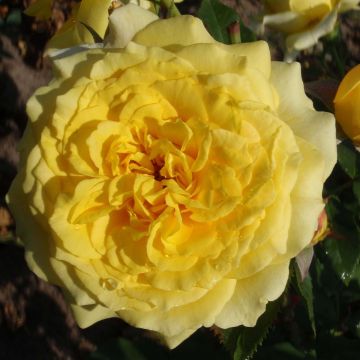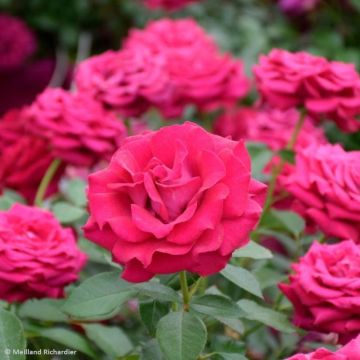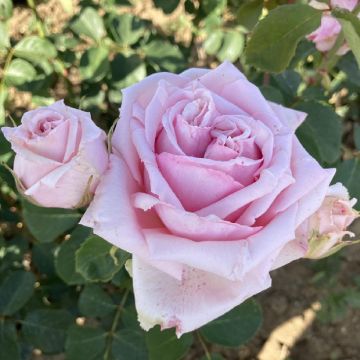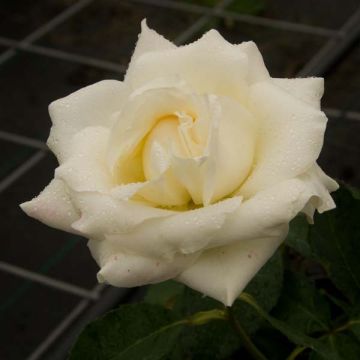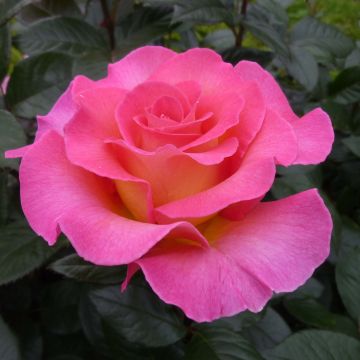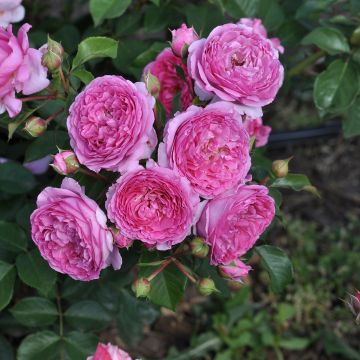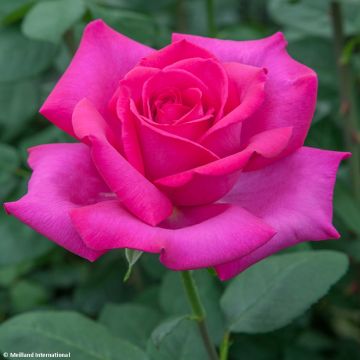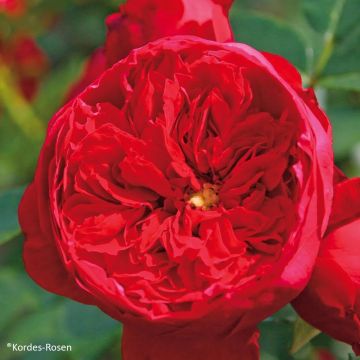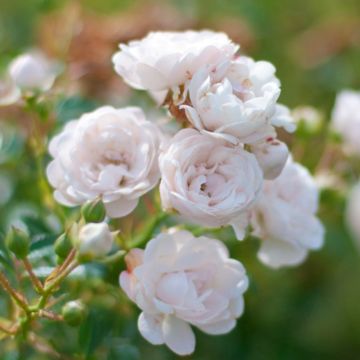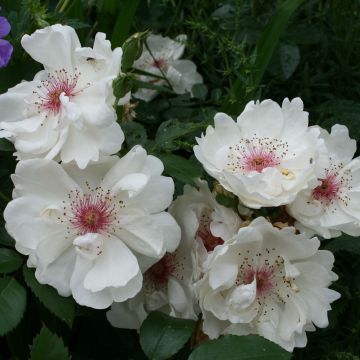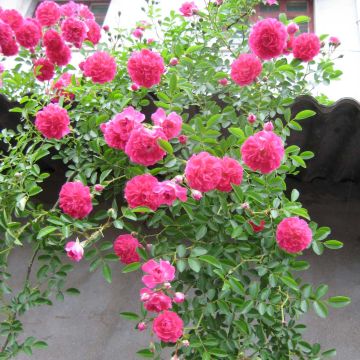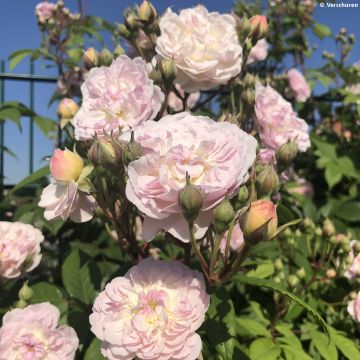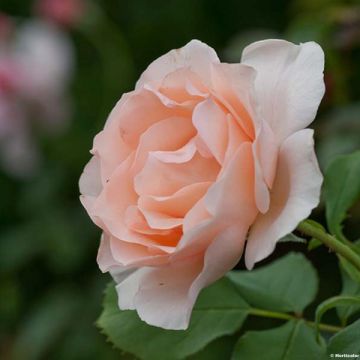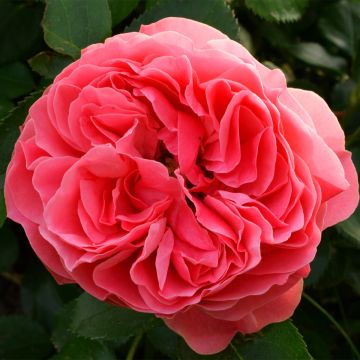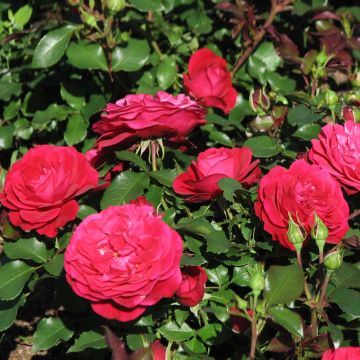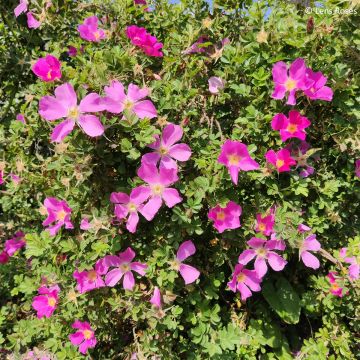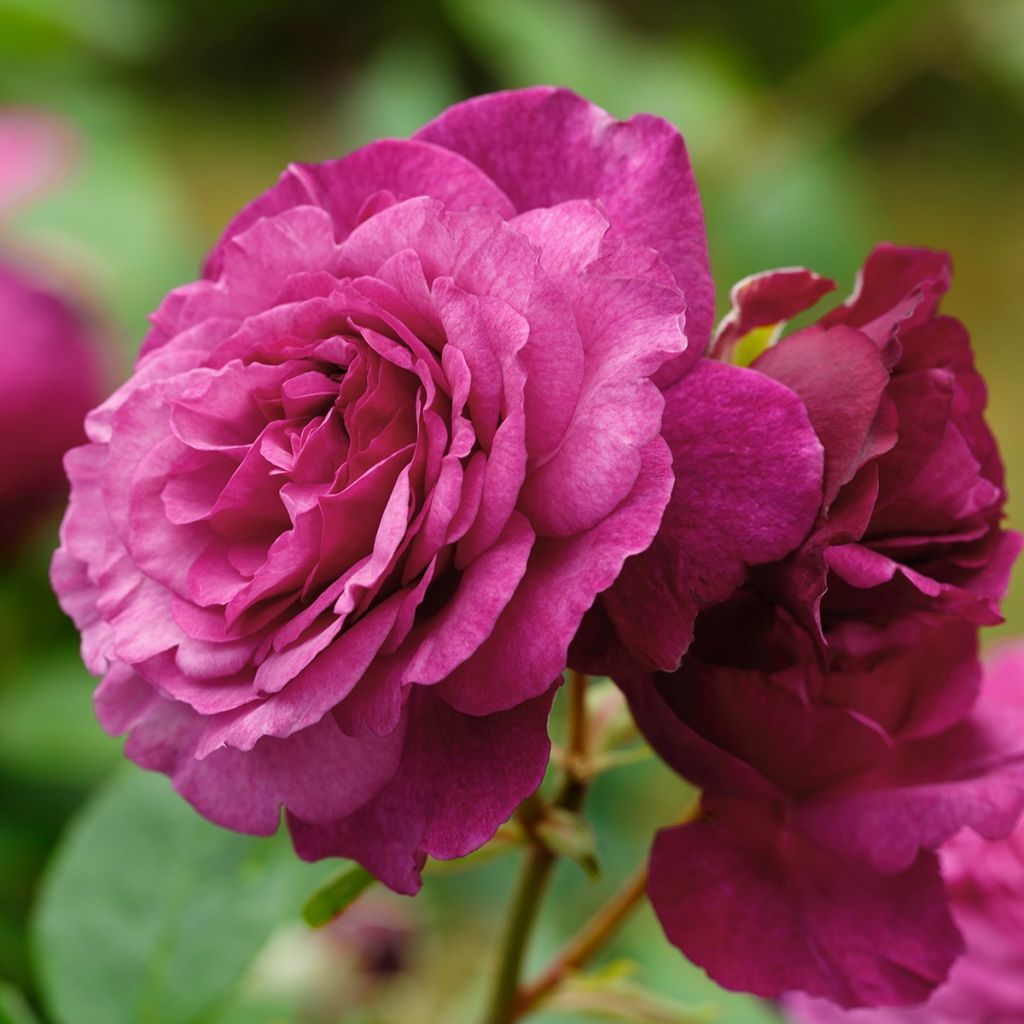

Rosa x floribunda 'Kaffe Fassett' - Shrub Rose
Rosa x floribunda 'Kaffe Fassett' - Shrub Rose
Rosa x floribunda Kaffe Fassett® 'Tan07291'
Tan07291
This item cannot be shipped to the selected country
Delivery charge from €5.90
Delivery charge from €5.90
Delivery to Corse prohibited
More information
Schedule delivery date,
and select date in basket
This plant carries a 24 months recovery warranty
More information
We guarantee the quality of our plants for a full growing cycle, and will replace at our expense any plant that fails to recover under normal climatic and planting conditions.
From €5.90 for pickup delivery and €6.90 for home delivery
Express home delivery from €8.90.
From €5.90 for pickup delivery and €6.90 for home delivery
Express home delivery from €8.90.
Delivery to Corse prohibited: UE law prohibits the import of this plant from mainland France to Corse as part of the fight against Xylella fastidiosa. Please accept our sincere apologies.
More information
Does this plant fit my garden?
Set up your Plantfit profile →
Description
The 'Kaffe Fassett' bush rose is a modern variety that will seduce with the rare colour and powerful scent of its roses. Assembled in bouquets, they are large, well double and a pretty deep pink with lilac and magenta highlights, and they exhale a pronounced scent of great freshness, which is not without reminding me of lime. Invite this charming bush into a romantic flowerbed in a large pot on the terrace, or create sumptuous bouquets with its flowers!
This English-type rose, 'Kaffe Fassett', is a creation of the German rose grower Tantau dating back to 2018. It will form a small, bushy, upright shrub about 1.20 m (4ft) tall and 90 cm (35in) wide. Its growth is fast, and its thorny stems are covered with dark green foliage divided into serrated leaflets. Under good growing conditions, it is not very susceptible to rose diseases. This foliage is deciduous; it falls off in autumn. On this perpetual variety, the flowers bloom in successive waves between June and October. These roses have over 50 petals and measure 9 cm (4 in). They bloom in clusters that look like bouquets and have a strong, rustic scent that is more noticeable in calm, warm weather. These roses are also resistant to rain. The artist Kaffe Fassett is well-known for her brightly coloured patchwork fabrics.
The 'Kaffe Fassett' rose blends well in a small flowerbed, and its colour is easy to mix with other flowers in the garden. It will be superb in the company of blue, white, violet, pink or purple flowers. Pair it with annual delphiniums, perennial flax, lavender or foxgloves. It will also bring a touch of romance to perennial flowerbeds and large borders. Roses go perfectly with catmints, lavenders, bellflowers, paniculate baby's breath and herbaceous or climbing clematis with small growth. Finally, you can plant it in front of taller shrubs or roses and use it to fill the base of a small tree so that it will dress with great charm. Planted in a pot on the patio or balcony, it will also have a great effect.
Report an error about the product description
Rosa x floribunda 'Kaffe Fassett' - Shrub Rose in pictures
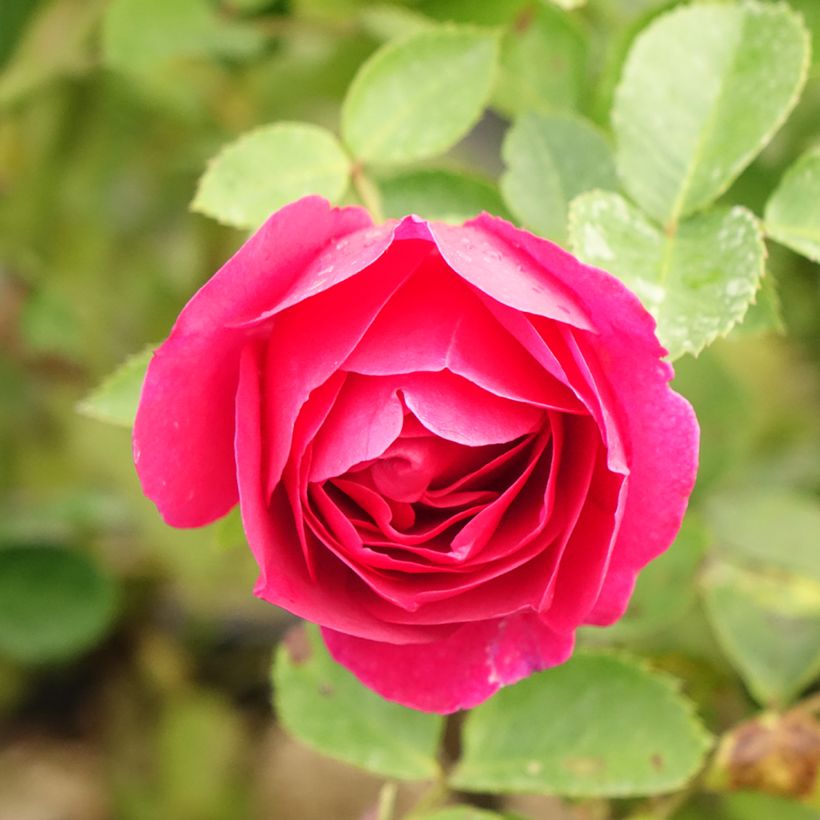

Plant habit
Flowering
Foliage
Botanical data
Rosa
x floribunda
Kaffe Fassett® 'Tan07291'
Rosaceae
Tan07291
Cultivar or hybrid
Rosa canina Laxa (2L/3L pot, Wrapped bare root)
Other Large-flower tea Roses
Planting and care
Plant your 'Kaffe Fassett' Rose in a sunny or lightly shaded position. Bedding roses are tolerant but will not appreciate excessive limestone or acidity. They adapt to any garden if the soil is well-worked and sufficiently rich. To plant your rose, prepare the soil by crumbling it and adding an amendment, such as blood, fish and bone, at the bottom of the planting hole. Water generously after planting to remove any air pockets. Water regularly for a few weeks to facilitate root growth.
Pruning is essential for repeat flowering roses. At the end of winter, shorten the branches to 3-5 buds above ground level (at the lowest), choosing an outward-facing bud for a more elegant habit. Take advantage of this pruning to remove dead wood and unsightly branches. Pruning should be done at an angle above a bud. As the flowers bloom, remove faded flowers to stimulate the development of other buds.
Roses may develop unsightly spots at the end of summer, but this is a natural occurrence and doesn't harm the rose's growth.
Planting period
Intended location
Care
-
, onOrder confirmed
Reply from on Promesse de fleurs
Roses by purpose
Haven't found what you were looking for?
Hardiness is the lowest winter temperature a plant can endure without suffering serious damage or even dying. However, hardiness is affected by location (a sheltered area, such as a patio), protection (winter cover) and soil type (hardiness is improved by well-drained soil).

Photo Sharing Terms & Conditions
In order to encourage gardeners to interact and share their experiences, Promesse de fleurs offers various media enabling content to be uploaded onto its Site - in particular via the ‘Photo sharing’ module.
The User agrees to refrain from:
- Posting any content that is illegal, prejudicial, insulting, racist, inciteful to hatred, revisionist, contrary to public decency, that infringes on privacy or on the privacy rights of third parties, in particular the publicity rights of persons and goods, intellectual property rights, or the right to privacy.
- Submitting content on behalf of a third party;
- Impersonate the identity of a third party and/or publish any personal information about a third party;
In general, the User undertakes to refrain from any unethical behaviour.
All Content (in particular text, comments, files, images, photos, videos, creative works, etc.), which may be subject to property or intellectual property rights, image or other private rights, shall remain the property of the User, subject to the limited rights granted by the terms of the licence granted by Promesse de fleurs as stated below. Users are at liberty to publish or not to publish such Content on the Site, notably via the ‘Photo Sharing’ facility, and accept that this Content shall be made public and freely accessible, notably on the Internet.
Users further acknowledge, undertake to have ,and guarantee that they hold all necessary rights and permissions to publish such material on the Site, in particular with regard to the legislation in force pertaining to any privacy, property, intellectual property, image, or contractual rights, or rights of any other nature. By publishing such Content on the Site, Users acknowledge accepting full liability as publishers of the Content within the meaning of the law, and grant Promesse de fleurs, free of charge, an inclusive, worldwide licence for the said Content for the entire duration of its publication, including all reproduction, representation, up/downloading, displaying, performing, transmission, and storage rights.
Users also grant permission for their name to be linked to the Content and accept that this link may not always be made available.
By engaging in posting material, Users consent to their Content becoming automatically accessible on the Internet, in particular on other sites and/or blogs and/or web pages of the Promesse de fleurs site, including in particular social pages and the Promesse de fleurs catalogue.
Users may secure the removal of entrusted content free of charge by issuing a simple request via our contact form.
The flowering period indicated on our website applies to countries and regions located in USDA zone 8 (France, the United Kingdom, Ireland, the Netherlands, etc.)
It will vary according to where you live:
- In zones 9 to 10 (Italy, Spain, Greece, etc.), flowering will occur about 2 to 4 weeks earlier.
- In zones 6 to 7 (Germany, Poland, Slovenia, and lower mountainous regions), flowering will be delayed by 2 to 3 weeks.
- In zone 5 (Central Europe, Scandinavia), blooming will be delayed by 3 to 5 weeks.
In temperate climates, pruning of spring-flowering shrubs (forsythia, spireas, etc.) should be done just after flowering.
Pruning of summer-flowering shrubs (Indian Lilac, Perovskia, etc.) can be done in winter or spring.
In cold regions as well as with frost-sensitive plants, avoid pruning too early when severe frosts may still occur.
The planting period indicated on our website applies to countries and regions located in USDA zone 8 (France, United Kingdom, Ireland, Netherlands).
It will vary according to where you live:
- In Mediterranean zones (Marseille, Madrid, Milan, etc.), autumn and winter are the best planting periods.
- In continental zones (Strasbourg, Munich, Vienna, etc.), delay planting by 2 to 3 weeks in spring and bring it forward by 2 to 4 weeks in autumn.
- In mountainous regions (the Alps, Pyrenees, Carpathians, etc.), it is best to plant in late spring (May-June) or late summer (August-September).
The harvesting period indicated on our website applies to countries and regions in USDA zone 8 (France, England, Ireland, the Netherlands).
In colder areas (Scandinavia, Poland, Austria...) fruit and vegetable harvests are likely to be delayed by 3-4 weeks.
In warmer areas (Italy, Spain, Greece, etc.), harvesting will probably take place earlier, depending on weather conditions.
The sowing periods indicated on our website apply to countries and regions within USDA Zone 8 (France, UK, Ireland, Netherlands).
In colder areas (Scandinavia, Poland, Austria...), delay any outdoor sowing by 3-4 weeks, or sow under glass.
In warmer climes (Italy, Spain, Greece, etc.), bring outdoor sowing forward by a few weeks.

































